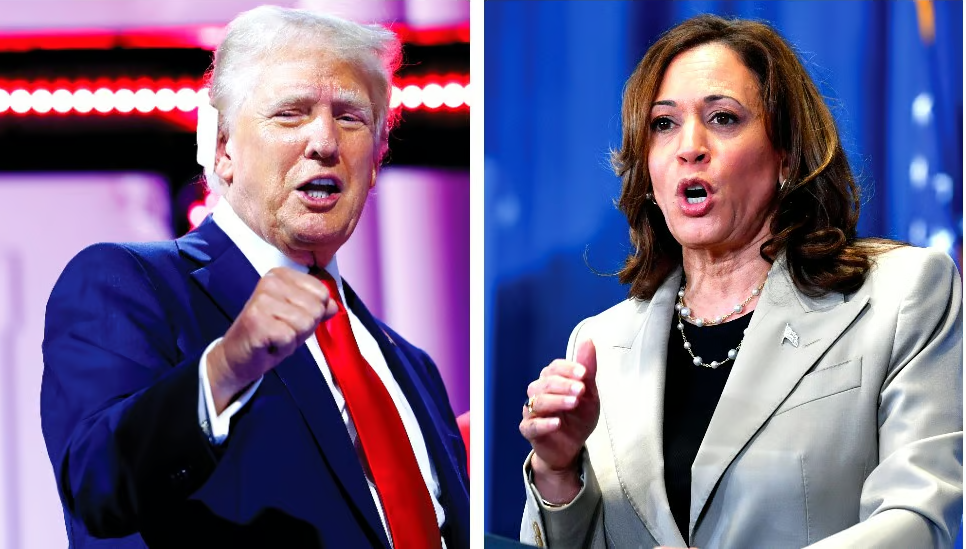
China-U.S. relations are about to enter uncharted waters, a new era defined by who wins the U.S. presidential election. As many Chinese analysts have pointed out, no candidate is perceived as being willing to improve the China-U.S. relationship. In fact, things are likely to get worse.
To begin, the U.S. election is occurring against a backdrop of intensifying geopolitical struggles, both old and new. They are old in the sense that a rising power is facing an established hegemon intent on protecting its preeminent position in the international system. They are also new, since China and the United States differ so greatly historically, culturally and in terms of their governance systems and philosophies.
Perhaps even more important, we are living in an era of unbridled technological innovation, with many key technologies playing into national strength and, thus, national security. It’s not just chips, but AI advances, robotics, genetic engineering, LIDAR and so much else that could transform an arms race into actual war. Nuclear arms, though, remain by far the most destructive weapons and if deployed could spell the end of humanity.
This year provides a serious backdrop, one that makes the U.S. presidential election a major geopolitical event. Yet, with fewer than 100 days to the election, not much is known about how the two candidates will face China. Foreign policy (except, perhaps, the Gaza war) has played a minor role in both campaigns.
For sure, both candidates have put forward policy proposals that are negative for China, though Kamala Harris’s positions are unknown for the most part. She is likely to continue the main policy planks of the Biden administration. Alas, ambiguity about how she would handle China could bedevil the relationship from the get go.
More is known about how Donald Trump would approach Beijing. His first administration showed a penchant for trade wars based on tariffs, combined with a willingness to make deals. Ultimately, though, his inclination to absolutely offend his counterparts could upend everything. Proposals such as the one to ban Chinese citizens and entities from buying land in the United States are likely to sour relations regardless of other trends.
Trump has proposed 60 percent tariffs on all Chinese goods and 10 percent on everyone else’s. But he has recently walked back his rhetoric on tariffs under pressure from major business donors. It is therefore likely he would try to use the threat of tariffs as a stick to cudgel China, perhaps extracting concessions on market access or more significant geopolitical matters.
For China, Trump’s proposed 60 percent tariff, if implemented, could be devastating. The Chinese economy is reeling because of the real estate downturn and subdued consumer and investor confidence. Exports thus remain an important driver of economic well-being in China.
Trump has been more ambivalent on Taiwan and the U.S. defense posture across East Asia in general. He has been asking allies and partners, including Taiwan itself, to pay for their own defense. He has not committed to helping Taiwan defend itself if attacked, a significant departure from the Biden administration.
An American retreat across East Asia could be beneficial for China, but also open a Pandora’s box as regional powers jockey for influence. Perhaps the most beneficial aspect of a second Trump administration would be less geopolitical pressure on Russia combined with frayed alliances, opening up international space for China. But again the resulting uncertainty in international relations could destabilize global power balances in ways that might not benefit Beijing at all.
On the other side, a Kamala Harris administration could end up being indistinguishable from a second Joe Biden term, but little is known about her precise views on the globe’s most important bilateral relationship. What is known is that she is a typical member of the liberal wing of the Democratic Party, focusing on China’s human rights regime and authoritarian governance. As a senator she co-sponsored legislation on Chinese human rights abuses with a focus on Hong Kong and Xinjiang.
One area where Harris is likely to continue Biden policies is seeking to suppress key technological advances in China. Efforts to forge tighter export regulations for chipmaking gear are thus likely to continue. These might go far beyond those at present, perhaps even to the point where key makers of photolithography machines, especially the Dutch company ASML, are barred from selling any products to China at all.
Harris has also been hawkish on the South China Sea, visiting the Palawan Province in the Philippines (which borders the sea) in 2022. This was a symbolic statement of U.S. support for Philippine territorial claims, a position that could put the United States in direct conflict with China. She is also likely to be hawkish on Taiwan — perhaps more so than Biden. She has publicly committed to strengthening Taiwan’s defense ties with the United States.
Nonetheless, on the campaign trail Harris’s foreign policy statements have mainly focused on deflecting pressure from the progressive wing of the Democratic Party regarding the Gaza war. She has also hewed closely to Biden’s talking points on the Ukraine-Russia conflict.
Uncertainty is perhaps the most pervasive hallmark of this election cycle, both domestically and internationally. The exact inclinations of Kamala Harris with regard to China remain nebulous. Even the addition of Tim Walz, who has in-depth knowledge of China, to the Harris ticket hasn’t added much light.
Trump, on the other hand, prides himself on changing positions and making deals. Under certain circumstances, his administration might grow more friendly with China. But in the final analysis, neither candidate currently has a coherent, workable China policy. Uncertainty abounds, and the world is heading into uncharted waters.